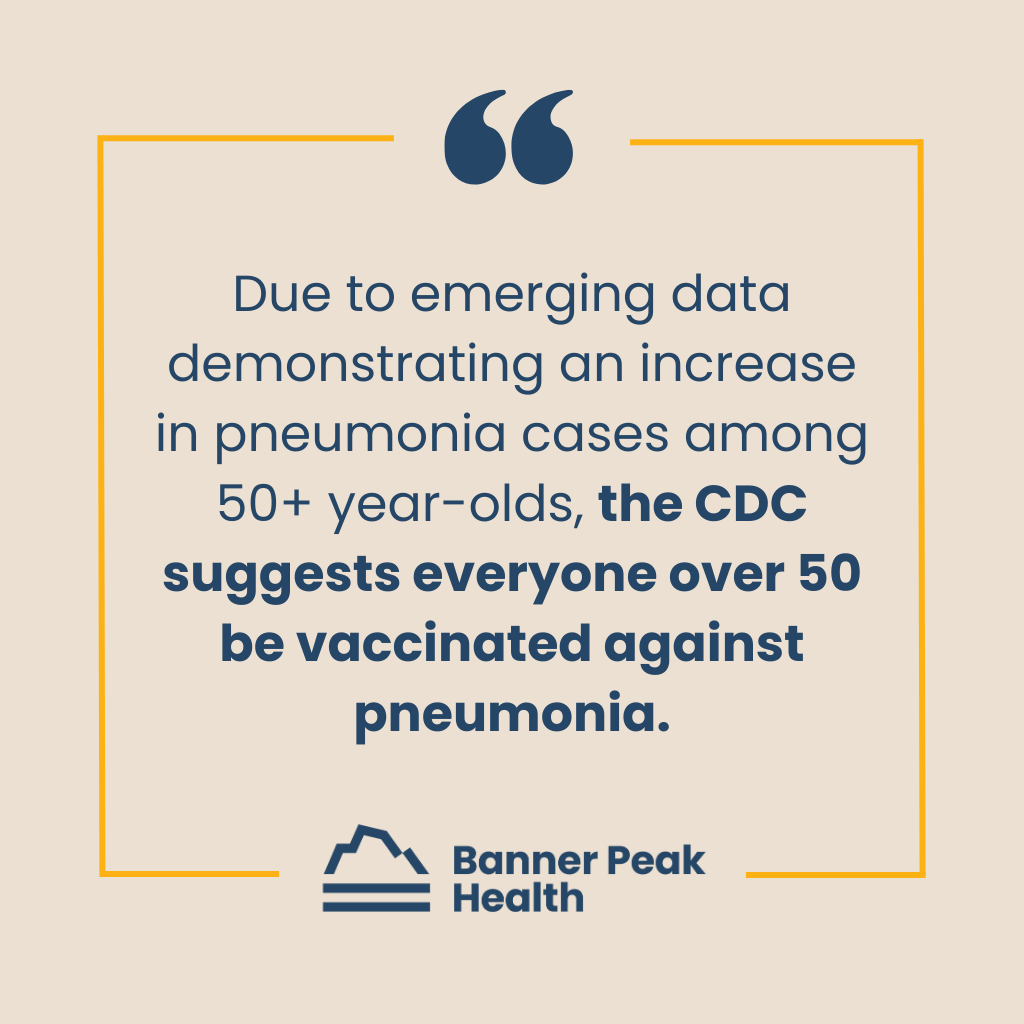The medical community used to believe vaccinating infants and young children was more important than vaccinating adults.
While early vaccination prevents infectious diseases from spreading among large populations, we now know that our ability to fight off certain diseases can decline as we age, especially in those with chronic illnesses and weakened immune systems.
One of those diseases is pneumonia, a lung infection that usually presents with fever and cough, often due to bacteria entering the lower respiratory tract and replicating.
Older and/or sicker people have a higher risk of severe pneumonia-related complications, though younger, healthier folks aren’t immune. The best pneumococcal vaccine schedule for you depends on your age, vaccination history, and underlying risk factors.
The CDC’s Updated Recommendations for Pneumococcal Vaccines for Adults
In June 2024, the CDC approved PCV21, a new pneumococcal vaccine for adults, and updated its guidelines that October.
Former guidelines recommended individuals aged 65 and over start pneumonia vaccination. Now, due to emerging data demonstrating an increase in pneumonia cases among 50+ year-olds, the CDC suggests everyone over 50 be vaccinated against pneumonia.
A Brief History of Pneumonia Vaccination
Many types of pneumonia exist. PCV21 prevents a specific type of bacterial pneumonia caused most commonly by streptococcus pneumonia. It doesn’t prevent atypical pneumonia, also known as walking pneumonia.
The first pneumonia vaccines, introduced in the early 2000s, targeted the serotypes most common among children and certain adults. Eventually, many of those serotypes disappeared because of herd immunity and the vaccination of higher-risk adults.
It’s a cycle: New strains appear, we create and administer vaccines to fight those strains, those strains are eradicated, new strains appear, etc. That’s why we’ve seen frequent updates to the pneumococcal vaccine schedule for adults and a quick succession of new pneumococcal vaccines for adults in the last decade.
The new vaccine (PCV21) contains no eradicated serotypes; only the serotypes that cause 77–85% of invasive pneumococcal infections in adults.
Natural Ways to Reduce Your Risk of Pneumonia
Aside from following a pneumococcal vaccine schedule for adults, you can reduce your risk of pneumonia by:
- Quitting smoking. If you don’t smoke, don’t start. In addition to increasing your risk of pneumonia, smoking damages the lungs, increases the risk of lung diseases like chronic obstructive pulmonary disease (COPD), and exacerbates existing chronic diseases like diabetes and heart disease.
- Practicing good oral hygiene. Regularly brushing your teeth limits the colonization of certain bacteria in your mouth. Left unchecked, these bacteria could spread to your lungs and lower respiratory tract.
- Exercising. Regular physical activity keeps your lungs in good shape. Exercise is especially helpful for patients with chronic conditions, including diabetes, heart disease, and chronic kidney disease.
- Develop a relationship with a concierge physician. It’s not enough to find any board-certified physician. Many physicians are swamped with patient panels thousands strong. They don’t have time to research all the new pneumonia vaccines introduced in the last 15 years, and they often make generic, population-based recommendations that disregard individual risk factors.A physician practicing in a concierge setting enjoys a small patient panel. He or she has time to learn about your medical history and research the best pneumococcal vaccine schedule for you.
Today’s Takeaways
While PSAs about seasonal vaccines (e.g., flu shots and COVID boosters) are common this time of year, it’s important to choose vaccines and boosters based on your individual risk — not just population-based recommendations.
For most patients who have never received pneumococcal vaccines for adults and are now eligible, PCV21 is the best choice. Meanwhile, many patients who have already received a recent pneumococcal vaccine may not need PCV21 now or in the near future.
The best way to stay healthy is to find a physician who has time to get to know your personal history and research the most appropriate vaccines for you. The doctors at Banner Peak Health make every recommendation on a case-by-case basis and are happy to answer your questions. Schedule an appointment today.

Lindsay Klein, MD
After years of feeling constrained by traditional medicine's time pressures and administrative demands, Dr. Klein joined Banner Peak Health to return to her original calling: building meaningful relationships with patients and providing truly individualized care.

